A superfood refers to foods that offer maximum nutritional benefits for minimum calories according to Medical News Today. Superfoods have a high volume of vitamins, minerals and antioxidants and are nutritionally dense. They are also high in flavonoids, fibre and good fats.
Although “superfood” is not a scientifically recognised term, some foods like blueberries, broccoli, avocado, salmon, dark chocolate, acai, turmeric, salmon and leafy greens like kale, chard and spinach have a high nutritional value and can be considered healthier than others.
Each superfood has different nutritional properties, but overall, they offer exceptional health benefits and are associated with improved immune function, decreasing inflammation, lower cholesterol, cancer prevention and heart health.
Manuka honey is also known for its many health benefits, but is it a superfood?
How Manuka honey is different from other honey
Honey is considered a natural therapeutic agent against many chronic conditions. It is beneficial in managing diabetes, fighting cancer and in promoting heart health. Because of its antibacterial, anti-inflammatory and antioxidant properties, honey has been used for various health issues such as healing wounds and injuries, treating coughs and colds, suppressing allergies, and improving skin conditions.
One of the unique properties of honey is its anti-bacterial qualities which protect the body from damage caused by bacteria. This anti-bacterial “power” of all honey is derived from hydrogen peroxide. However, this substance is easily affected by light and temperature, making it quite unstable.
In contrast, Manuka honey contains an additional substance known as Methylglyoxal (MGO), which is more stable than hydrogen peroxide. MGO gives Manuka honey its unique healing properties and powerful antibacterial effects. The higher the MGO, the stronger its antibacterial effects.
The compound MGO is derived from the conversion of another compound found in Manuka honey known as dihydroxyacetone (DHA), which is found in high concentration in the nectar of leptospermum scoparium flowers (also known as a tea tree). These flowers are native to Australia and New Zealand.
Typically, genuine Manuka honey also contains another chemical called leptosperin, which is naturally occurring and only found in the nectar of the Manuka plants.
These three compounds–MGO, DHA and leptosperin, give Manuka the Unique Manuka Factor or UMF, which is a measure of the potency and quality of Manuka honey.
Benefits of Manuka Honey
Manuka honey offers a range of unique benefits:
- Thanks to its antibacterial, antiviral, antioxidant and strong anti-inflammatory properties, Manuka is used to treat wounds, burns and other skin conditions promoting quicker healing because of its lower pH levels.
- Because its antibacterial effects come from MGO, it does not lose its effectiveness when diluted with blood, serum or wound tissues and can thus maintain its powerful effects against the growth of bacteria.
- It prevents the formation of biofilm (community of bacteria) and even destroys biofilm that has already been formed.
- The unique properties of Manuka honey kill harmful bacteria, including antibiotic-resistant bacteria. Unlike antibiotics, Manuka honey does not lead to bacteria that is resistant to its antimicrobial properties.
- It’s unique anti-bacterial activity fights against gingivitis, reduces dental plaque and inflammation, and prevents tooth decay and cavities.
- Manuka honey kills bacteria, Streptococcus mutans, which causes a sore throat.
- Some research shows Manuka honey can help heal diabetes-related ulcers and can increase gastric enzymes to protect against oxidative damage, which causes inflammation and gastric-ulcers.
- Manuka honey can fight bacteria that cause upper respiratory infection, such as those found in cystic fibrosis.
Manuka Honey- a Superfood?
Manuka Honey contains a range of vitamins and minerals—B-vitamins, calcium, copper, iron, magnesium, potassium, sodium, and zinc—which can support bodily function and our health. But it is still high in sugar.
Even though manuka is packed with vitamins and minerals and as impressive as its health benefits are, there is still more research and evidence needed to proclaim it a superfood.
Superfood or not, Manuka honey with its unique antibacterial profile and potent anti-inflammatory, antioxidant and antiviral properties stands apart from some of the other honey and can be greatly effective for your health and wellbeing.
Need MGO guaranteed high-quality Manuka Honey? Look no further! Instead, visit our store for all Manuka honey products.



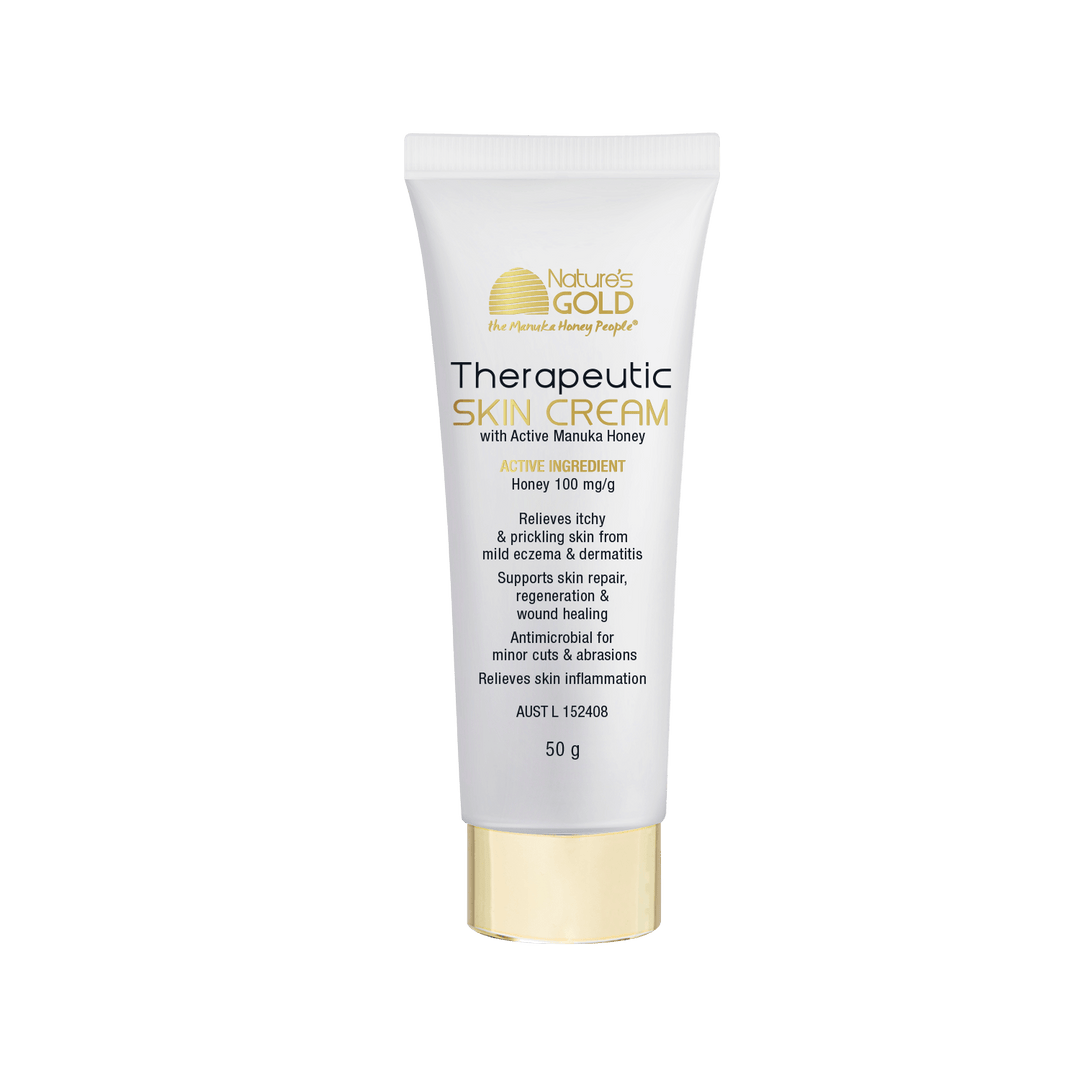
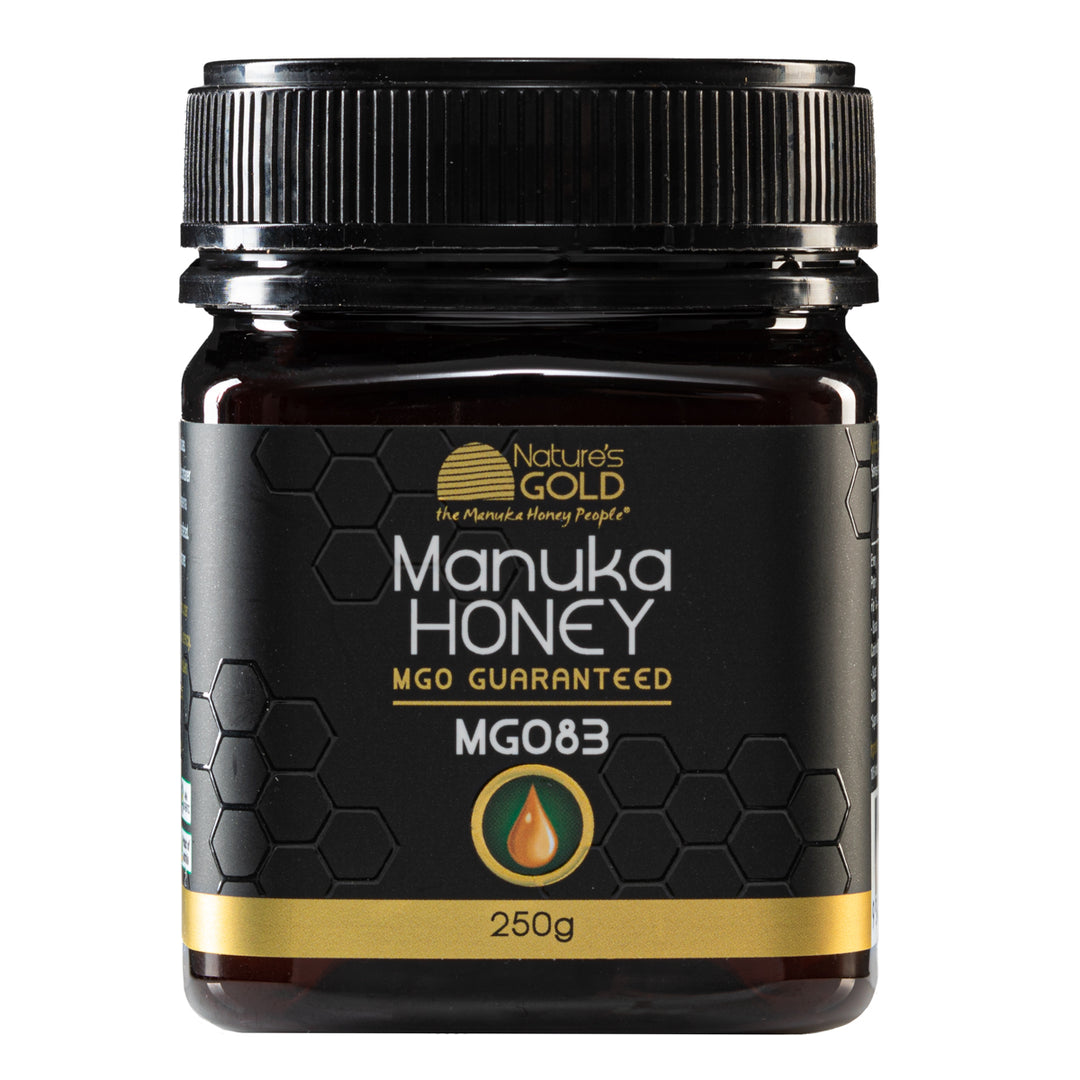
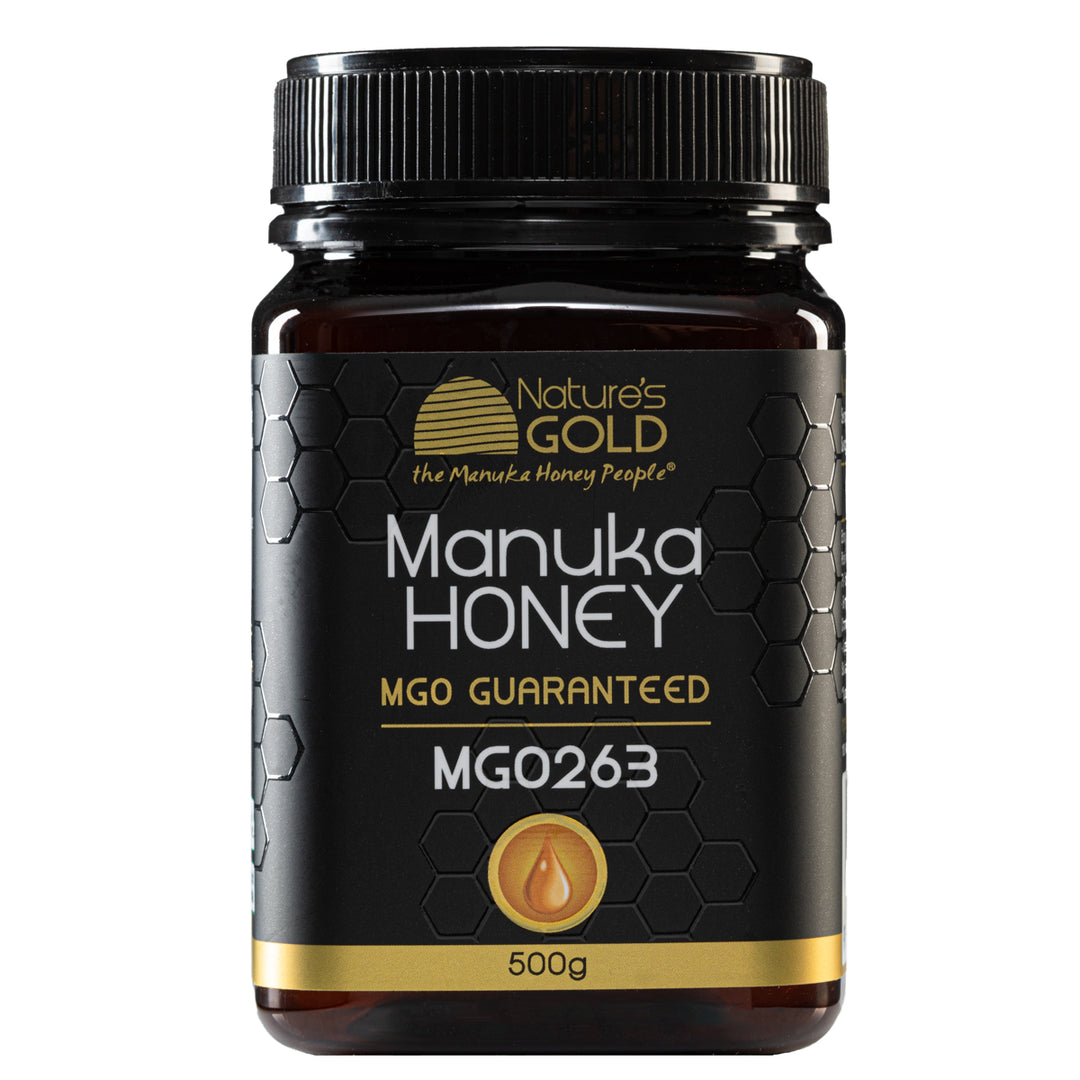
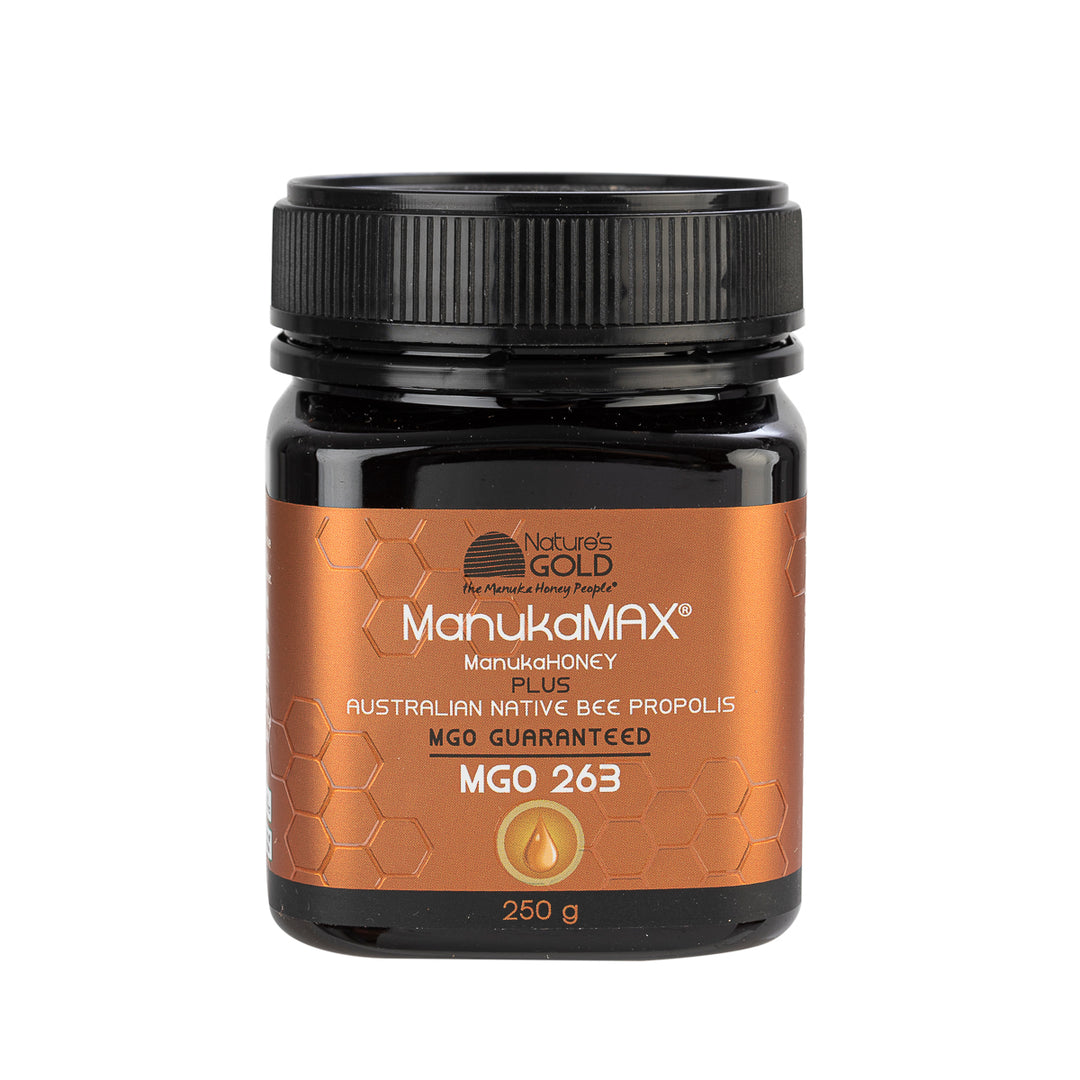
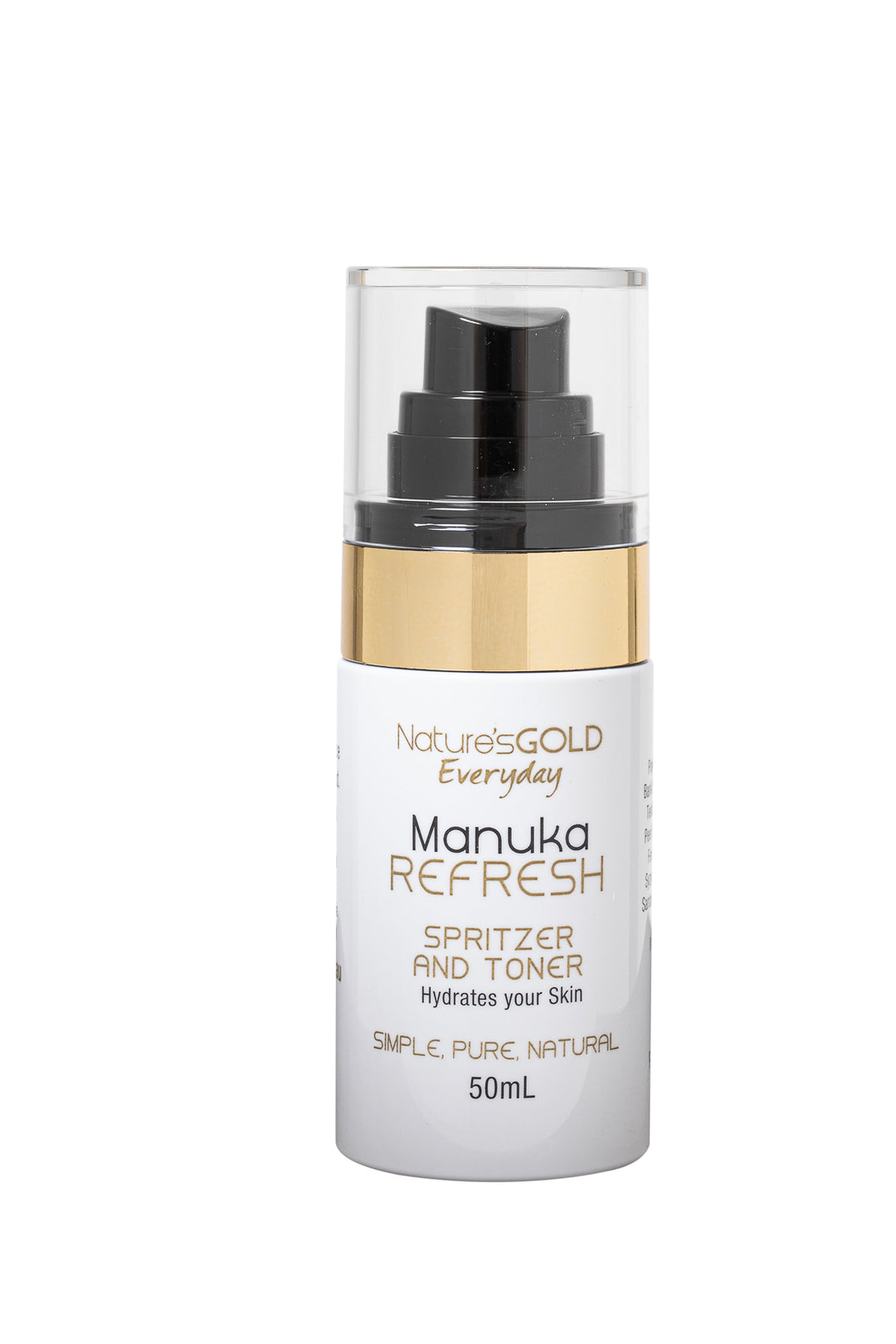


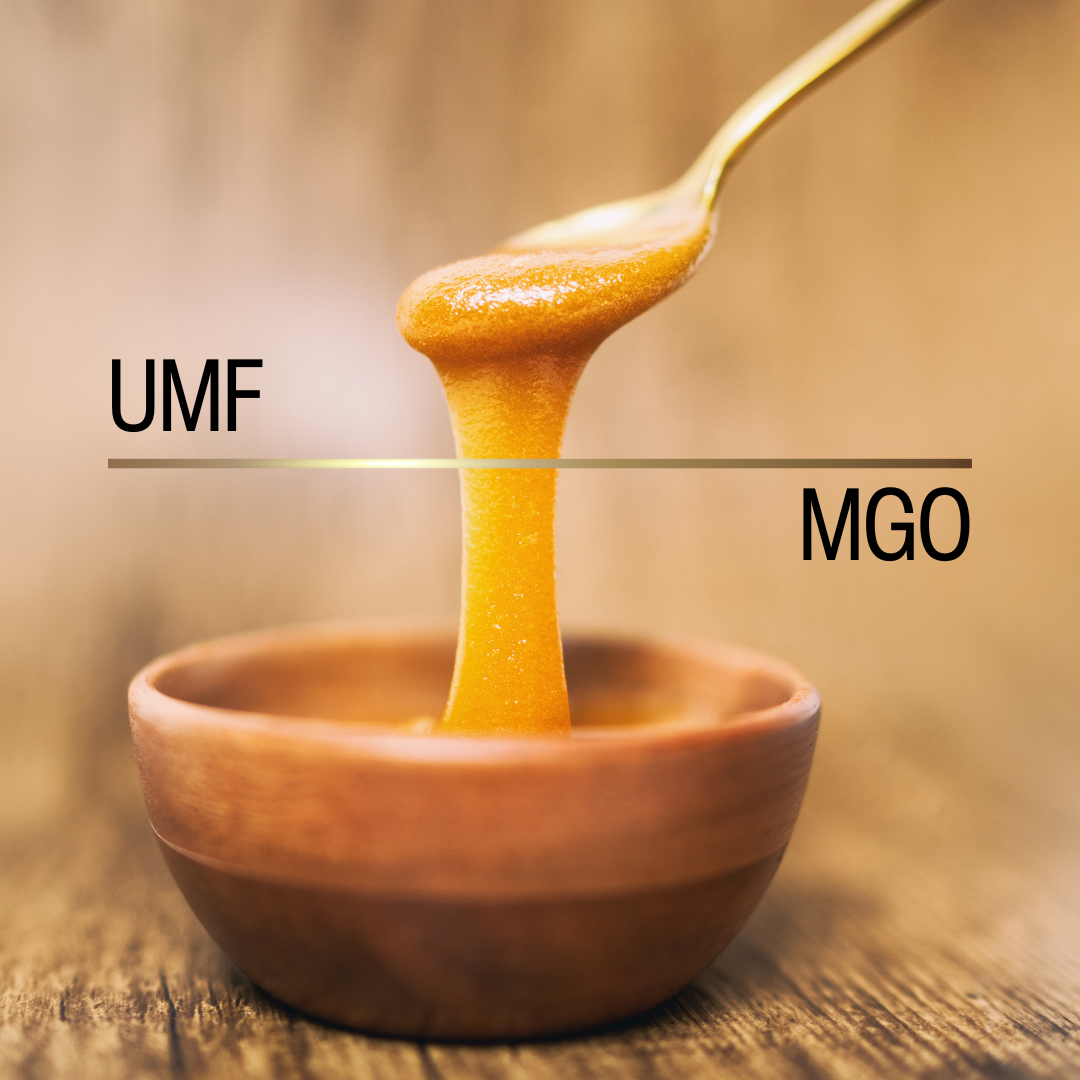
Leave a comment